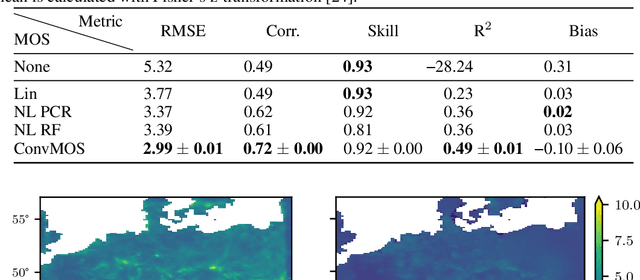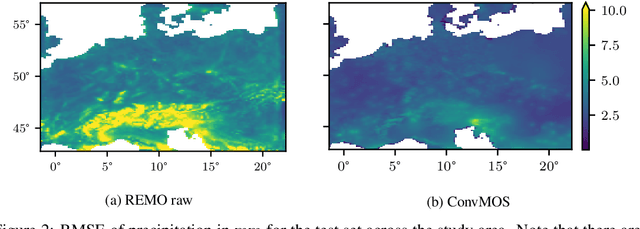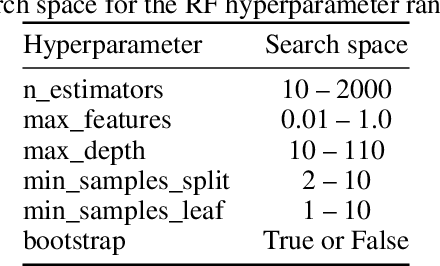Deep Learning for Climate Model Output Statistics
Paper and Code
Dec 09, 2020



Climate models are an important tool for the assessment of prospective climate change effects but they suffer from systematic and representation errors, especially for precipitation. Model output statistics (MOS) reduce these errors by fitting the model output to observational data with machine learning. In this work, we explore the feasibility and potential of deep learning with convolutional neural networks (CNNs) for MOS. We propose the CNN architecture ConvMOS specifically designed for reducing errors in climate model outputs and apply it to the climate model REMO. Our results show a considerable reduction of errors and mostly improved performance compared to three commonly used MOS approaches.
* Accepted for the Tackling Climate Change with Machine Learning
Workshop at NeurIPS 2020
 Add to Chrome
Add to Chrome Add to Firefox
Add to Firefox Add to Edge
Add to Edge